In his speech at the "100 Years of Quantum Physics" Conference held in Gia Lai on October 7, Professor Serge Haroche - French quantum physicist, winner of the 2012 Nobel Prize in Physics - said that the prerequisite to attract young minds to science is to build a good education system from primary and secondary school.
Professor Serge Haroche had a private conversation with Dan Tri reporter about general education - a topic that he is interested in and wishes to see worthy investment in Vietnam.
The core of any good education is good teachers.
- According to the Professor, what role does investment in education at the general level play in the development of science and technology in general and quantum physics in particular in Vietnam, especially in laying the foundation of knowledge and arousing passion for science in the young generation?
Of course good education is essential, not just for quantum physics, but for all fields. We need educated people who understand the problems that exist, who understand why science is important in meeting the challenges that humanity faces.
We need citizens who understand that science is objective, describes the truth and reflects reality in a reasonable way. Because there is too much irrational thinking and too many false opinions spreading everywhere. Therefore, we need people who are well-educated, have critical thinking and the ability to make reasonable judgments, and are not influenced by fake news or bad people.
Therefore, education is extremely important in general, and especially important in science education. A country needs both engineers and scientists. Any investment in education is worthwhile, that is, a good education in mathematics, natural sciences, not only physics but also biology and medicine.
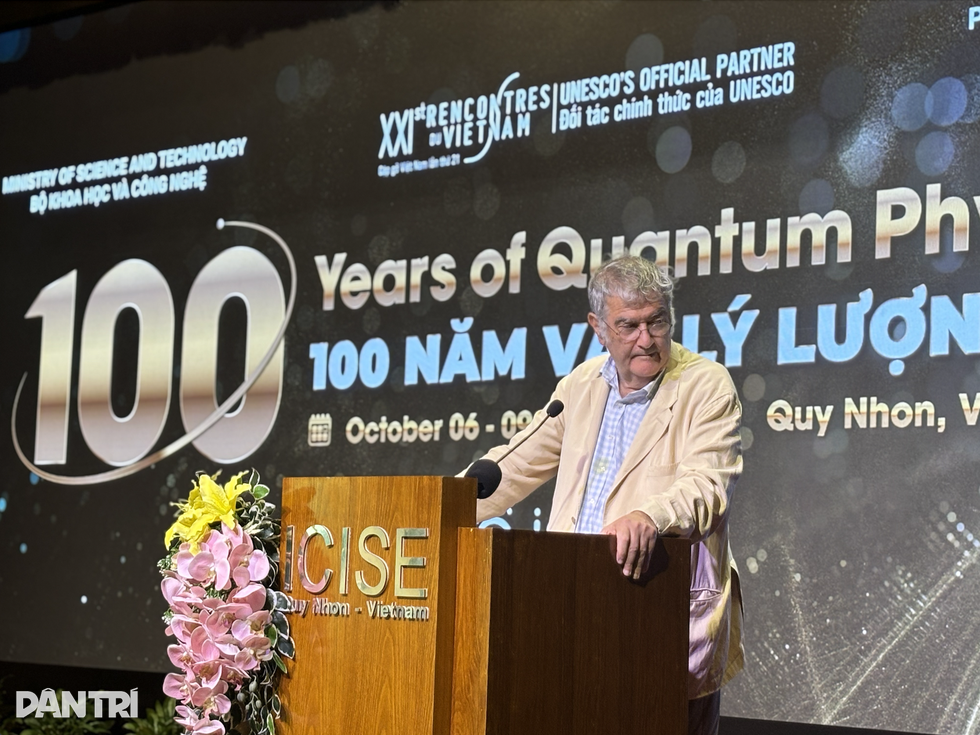
Professor Serge Haroche at the "100 Years of Quantum Physics" Conference on October 7 in Gia Lai (Photo: Hoang Hong).
I think the most valuable asset of a country like Vietnam is the intelligence of its young generation. This is true not only for Vietnam but for every country. I think that the level of education in Vietnam is quite good at the moment, although of course there is room for improvement.
Countries like Singapore, South Korea and Hong Kong have very good education systems. They were very poor 50 years ago, but look at how they have developed. I believe that Vietnam can absolutely follow that path, towards progress.
- Vietnam has a policy of including STEM education in the general education curriculum, even at the primary level. However, there are still many challenges. Can you share some ideas or suggestions to help teach STEM more effectively at the primary level?
In France, there was a program called "La main à la pâte" (The Hand-Kneading Method of Science Teaching), initiated by Nobel Prize-winning physicist Georges Charpak, a friend of Professor Tran Thanh Van.
This program helps children learn natural sciences through simple experiments, with basic laboratory equipment, helping them see physical, chemical, and mathematical phenomena very intuitively. I believe that in Vietnam there are also educators who know this model.
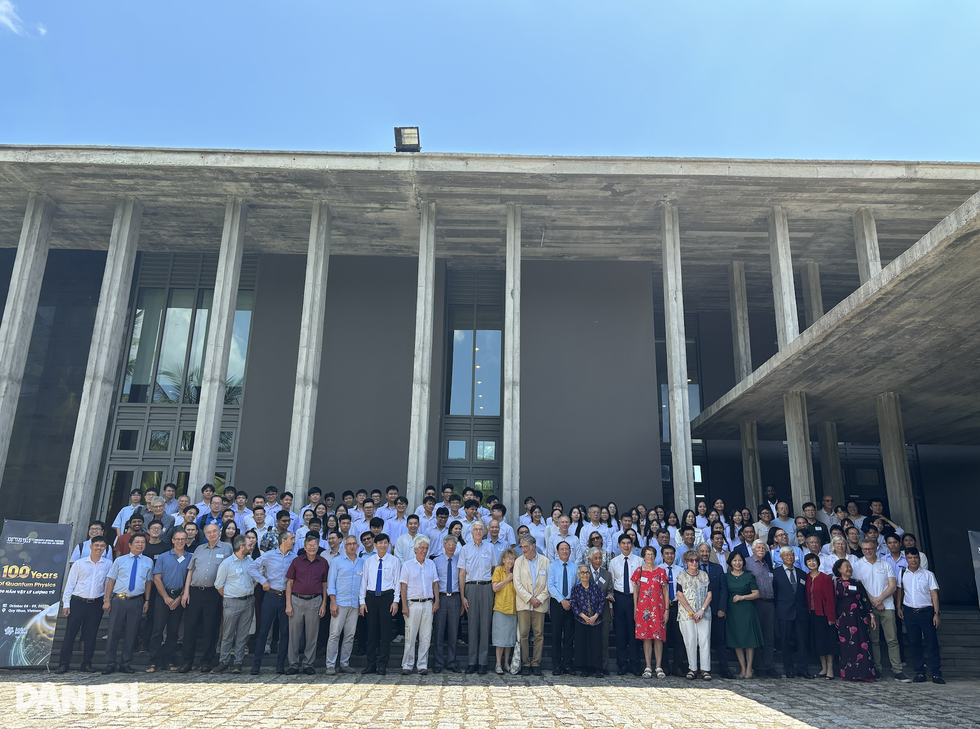
Professor Haroche and his wife (in yellow shirt, standing in the middle, front row) and the world's leading scientists in quantum physics gathered in Gia Lai (Photo: Hoang Hong).
But the core of any good education is good teachers, even at the primary level. And to have good teachers, for example good math teachers, you need to make sure they have a good standard of living and a decent income. Otherwise, they will leave the profession.
A person who is good at math will not teach children if their income is 10 times lower than working in another field.
To invest in education, a country must recognize that good teachers are as important as good engineers, that they need to be paid well and respected by society. That is what South Korea did 30-40 years ago: the government recognized the important role of teachers, expected high standards from them, and in return, paid them well. Education then made great strides.
Even in France. A hundred years ago, or even 50 years ago, the teaching profession was much more respected. Now it is not so, and the quality of education is affected. There are still good teachers, especially in humanities and literature, but in subjects like mathematics, it is very difficult to find good people, because they have many other more attractive career options.
- During your school years, how did your teachers or the education system inspire your love of science and research?
Like I said, it was a long time ago. I had some great math teachers. I remember in late high school I had a teacher who was really good, even teaching outside the curriculum, and that was very helpful.
When I was in college, I had some great professors in the fields of quantum physics and atomic physics (as they were called at the time). That was what pushed me to follow this path.
- So the important thing is to meet the right teacher at the right time, Professor?
Yes, meeting the right teacher and being in the right environment. It is both luck and the ability to recognize what really interests you and what you want to pursue.
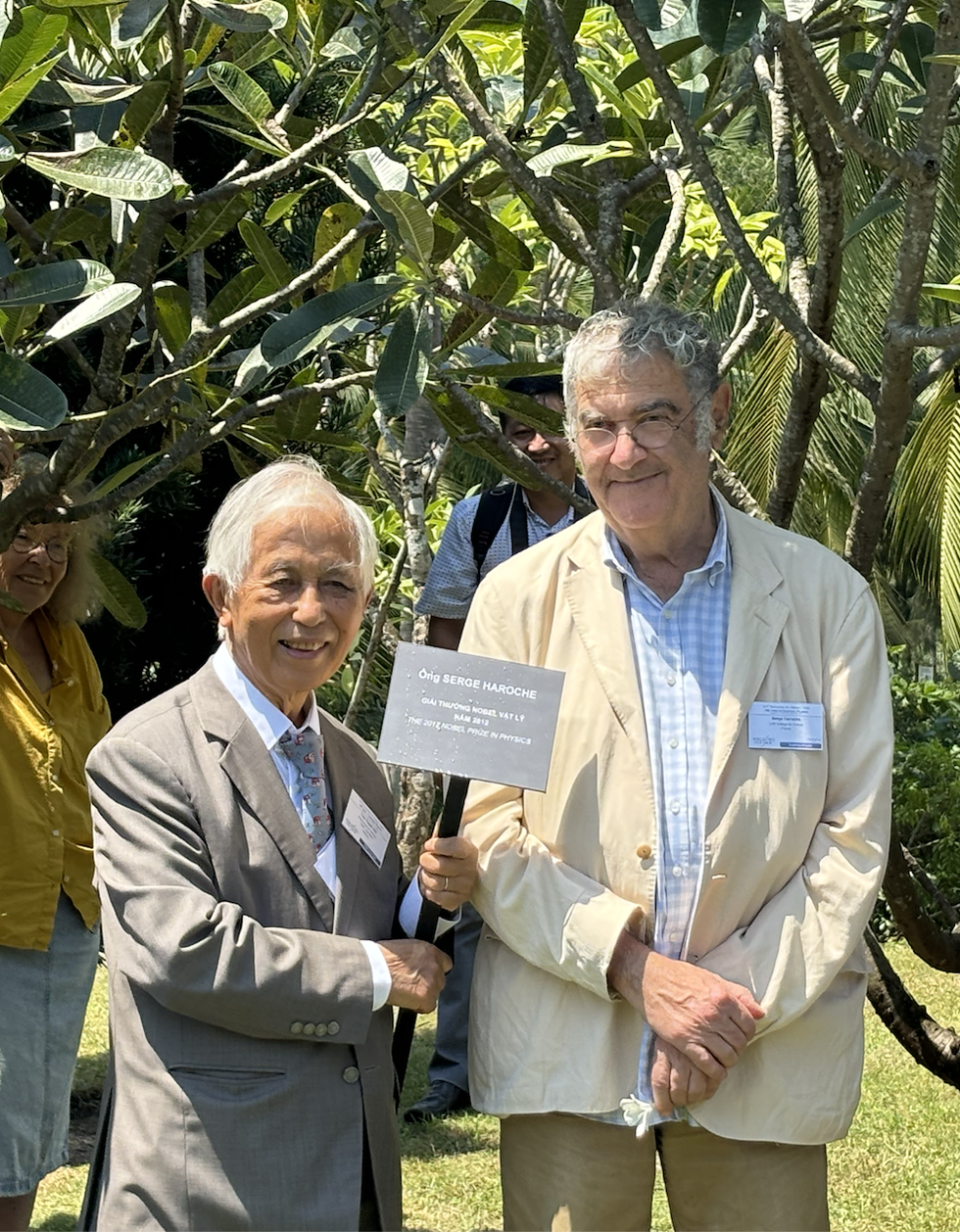

The "catch-up" mindset causes many countries to focus on applications and neglect basic science.
- In the past few days, you have met many Vietnamese students. What is your impression of them?
I met many young researchers who had passed the student stage and some students came to take pictures with me. I was really impressed by their enthusiasm and passion for science. After each lecture, seeing them eager to come and talk, I was really touched.
I really like that. I like to interact with young students, it makes me feel young again. And we need young people like that, because they are the future of the country. We need to inspire them, to instill in them the passion for discovery and scientific curiosity.
The young researchers I met here were very impressive. Many are working in France, the US, Singapore. I hope that one day they will return to Vietnam to contribute to the development of the country. The most important thing is to give them freedom - freedom to research and do what they want to do.
- After visiting Quy Nhon University, what is your feeling about the university education environment in Vietnam?
I felt the dynamism and enthusiasm. Although the meeting was quite formal, I still shared with the teachers that: Universities need to create a free environment for students and young lecturers, so that they can do research without too much pressure or influence from superiors.
The most effective research is done by young people, and older people should only play a guiding role, not too much control. I see that in Vietnam, there is more respect for the elderly than in Europe, which is very good in social life, because in Europe, the elderly are sometimes isolated and not cared for. But in academia, older people need to know how to give way to the younger generation, so that they have the opportunity to take on responsibility and be creative.
I understand that the current retirement age in Vietnam is quite low, which is good, because it helps create a generational transition in the scientific community.
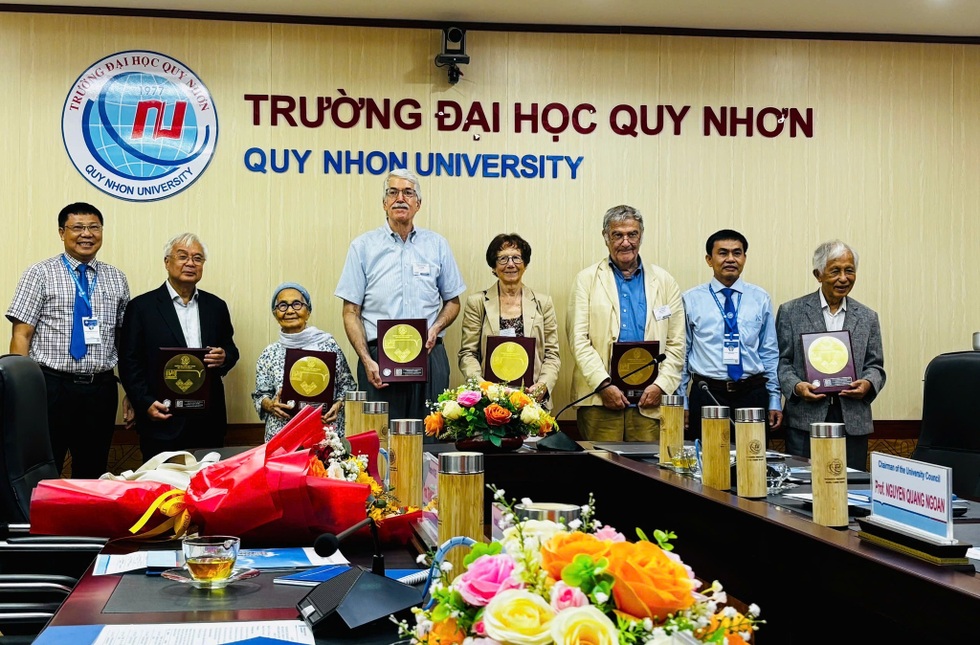
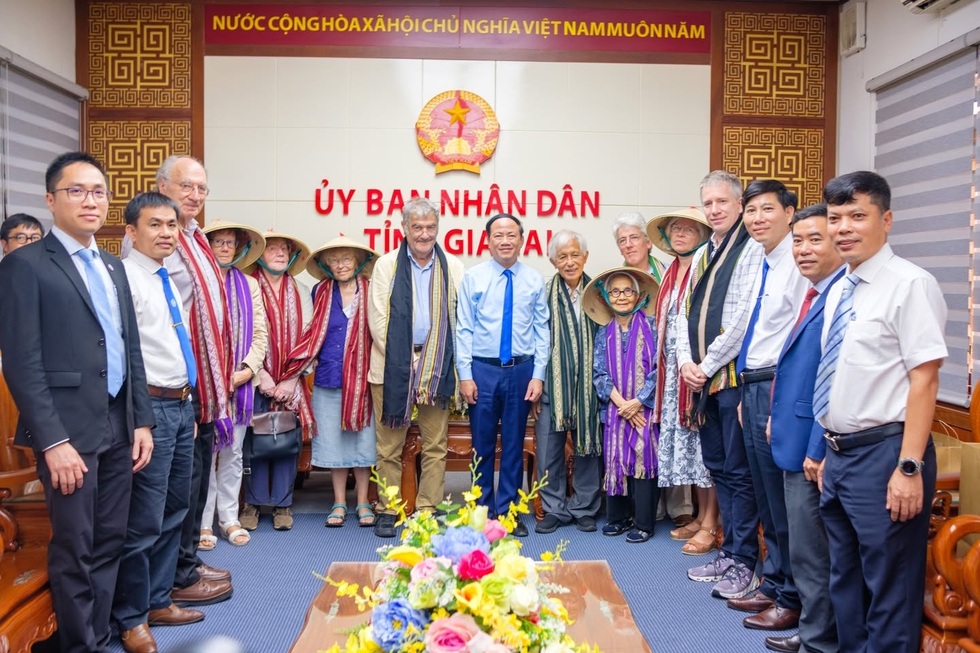
Professor Haroche and physicists visited Gia Lai Provincial People's Committee and Quy Nhon University (Photo: ICISE)
- According to the Professor, how will the establishment of international scientific research centers like ICISE affect students and young people?
The fact that ICISE is located near the university is a great advantage in creating an environment for learning and sharing knowledge. In addition, having centers for children to get acquainted with science at an early age is also very important. All of these are very positive signals for the development of science and technology in Vietnam.
- How do you evaluate the role of Professor Tran Thanh Van in promoting scientific research and inspiring the young generation in Vietnam?
First of all, he has made a great contribution to education. I know that he has many scholarship funds to support students from disadvantaged areas to access education. That is extremely important. Besides, he is also a pioneer in building an international scientific organization model, first in France, then in Vietnam, where scientists from all over can meet and exchange freely. Cross-border exchange is the most effective way to promote scientific development.
Both Professor Van and his wife have played an important role in the development of education and science in Vietnam. They are symbols of the connection between the two countries. This is very precious, especially after the events of the past. I see that the Vietnamese people always look to the future and are not held back by the past. Not every country can do that.
- In the context of globalization and increasingly fierce competition in science and technology, according to the Professor, what policies or solutions does Vietnam need to catch up with advanced countries in the fields of quantum physics and science and technology?
In many developing countries, there is a tendency to think “we have to catch up”, so they only focus on applications and technology, and neglect basic research. I think that is a mistake.
If we want to produce good professionals who can catch the wave of progress in the future, we must equip them with a solid foundation in basic science. To attract them to science, we must first ignite the fire of passion. That passion comes from being exposed to big problems, fundamental questions.
Therefore, while the majority of investment may be for technology, 20-30% of the budget should still be devoted to basic research – the “fertile ground” on which the tree of science can grow.
When I planted the tree here, I thought it was a beautiful symbol of basic science. Trees can only grow in good soil, and that soil is basic research. But planting trees requires patience and long-term care to produce results.
The same goes for science policy: it needs to be persistent and not constantly changing, because results only come after 5-10 years.
In addition, I think Vietnam should encourage private funding to accompany the state in investing in scientific research.
Science is part of human culture and civilization. It requires creativity, imagination and intuition just like art, music or literature. They all come from the same human mind.
Therefore, for harmonious development, higher education needs to combine science and technology with social sciences, humanities, including the history of science. Each country will develop according to its own cultural foundation, but science and culture must go together.
Thank you for this conversation!
Source: https://dantri.com.vn/giao-duc/giao-duc-se-tien-bo-vuot-bac-khi-nha-giao-duoc-tra-cong-xung-dang-20251009161435621.htm



![[Photo] Opening of the World Cultural Festival in Hanoi](https://vphoto.vietnam.vn/thumb/1200x675/vietnam/resource/IMAGE/2025/10/10/1760113426728_ndo_br_lehoi-khaimac-jpg.webp)

![[Photo] Ho Chi Minh City is brilliant with flags and flowers on the eve of the 1st Party Congress, term 2025-2030](https://vphoto.vietnam.vn/thumb/1200x675/vietnam/resource/IMAGE/2025/10/10/1760102923219_ndo_br_thiet-ke-chua-co-ten-43-png.webp)
![[Photo] Unique Phu Gia horse hat weaving craft](https://vphoto.vietnam.vn/thumb/1200x675/vietnam/resource/IMAGE/2025/10/10/1760084018320_ndo_br_01-jpg.webp)


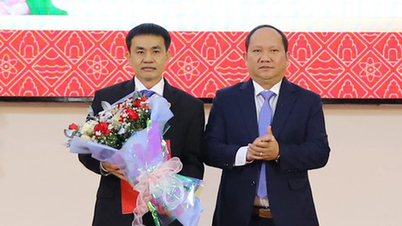

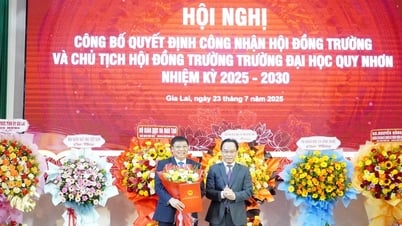


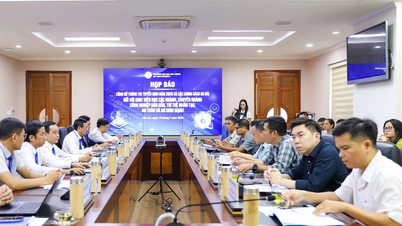



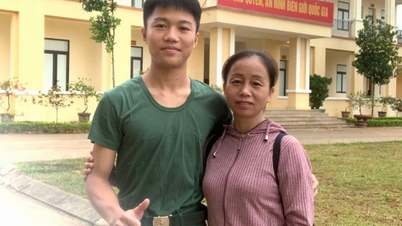


![[Video] Ho Chi Minh City: Many subjects still lack teachers](https://vphoto.vietnam.vn/thumb/402x226/vietnam/resource/IMAGE/2025/10/10/1760108638254_gv-png.webp)


























































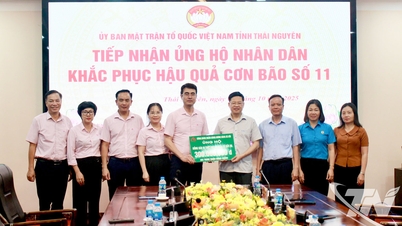






















Comment (0)